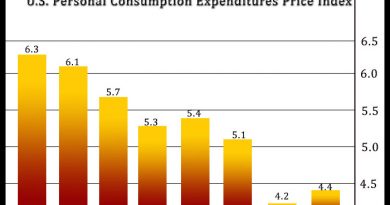Look beyond the surface and don’t be afraid to lose money: How to invest ethically
Save articles for later
Add articles to your saved list and come back to them any time.
A question often asked by novice investors is how much you should prioritise a company’s green credentials versus its financial performance. Gen Zs and Millennials are increasingly concerned with the impact our super funds and personal investments have on our planet.
Should investors be gauge the impact of our ESG investments through financial returns or their intended outcomes? There are more important metrics to consider when investing ethically, such as impact and value creation. Bottom line: don’t be afraid to see red on your balance before you see green impact in the real world.
Now more than ever, Gen Zs and Millennials are increasingly conscious of the impact our super funds and personal investments have on our planet.Credit: AP
The correlation between performance and ESG impact is not clear cut and the practice of ESG investing doesn’t always align with short-term profitability objectives. Implementing sustainable initiatives or improving social practice often means significant capital expenditure and may require various trade-offs that affect financial performance.
However, in the long term these companies are better equipped to manage ESG risks, which in turn leads to not only greater long-term social impact but can also support greater financial performance.
To give you a snippet of the growth and size of the ESG universe, ethical and responsible exchange-traded funds (ETFs) in Australia now hold $10.1 billion, with over 56 ethical funds listed on the market, up from 37 in March 2022. This clearly shows that investors are looking to align their capital to a cause that they believe in and are demanding greater transparency and choice from their financial institutions.
There are many ways to invest your money sustainably and ethically. For younger investors, that can start with their first super fund: there are a variety to choose from with green credentials.
Alternatively, investing ethically and sustainably can be built directly into our personal portfolios. Given the broad range of ESG investing that stretches from technology and healthcare to renewable energy, ETFs provide a solution to this broad scope as they offer a basket of stocks in a common category.
Top providers such as BlackRock, Vanguard, VanEck and Betashares all offer a range of ETFs that are screened according to various sustainability criteria across companies that are leaders in sustainability. However, it is important to note that these criteria are not universal or regulated to uniformity, which can affect performance but most importantly impact.
That being said, you can always do your due diligence and examine the holdings of a particular ETF to determine whether it aligns with your values.
But even with the best intentions, some investors may be duped by the increasingly prevalent trend of greenwashing, where companies or funds market their service or product based on ESG claims that are misleading or have no reasonable basis. For example, an investment provider can’t claim an ESG label on a fund and have the world’s largest industrial polluters in their portfolio.
The impact of engagement is a metric that is difficult to measure.
Recently, corporate regulator ASIC has clamped down on greenwashing, going after several super funds and investment providers on the legitimacy of their ESG claims. For us younger investors, greenwashing is at the forefront of our investment decisions with the Responsible Investment Association of Australasia highlighting that 80 per cent of Gen Z investors are concerned about its current prominence.
Younger Australians have clearly shown they are deeply engaged in the discourse surrounding sustainable and ethical issues, from climate change to human rights. However, the impact of engagement is a metric that is difficult to measure. In a world that is built on financial architecture as much as it is built on physical architecture, investing positively can help drive visible impact.
It’s now easier than ever to put your money where your mouth is, but a word of advice: look under the hood of your investments, and dig a little deeper to understand the true impact of your money.
- Advice given in this article is general in nature and is not intended to influence readers’ decisions about investing or financial products. They should always seek their own professional advice that takes into account their own personal circumstances before making any financial decisions.
Most Viewed in Money
From our partners
Source: Read Full Article




